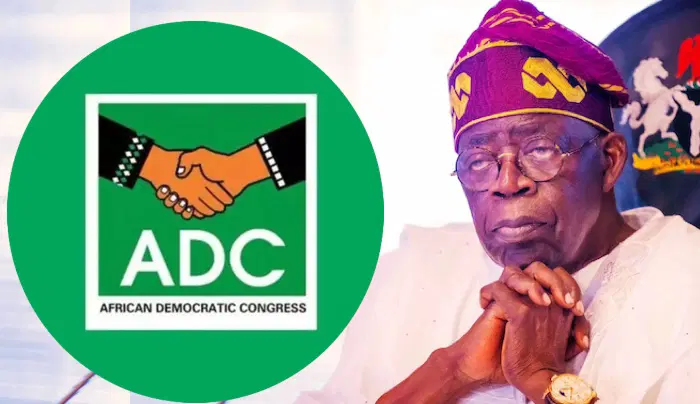The African Democratic Congress (ADC) has called on President Bola Tinubu to step outside the confines of the Presidential Villa and engage directly with ordinary Nigerians to truly grasp the nation’s ongoing security challenges.

Speaking on Channels Television’s Politics Today, Bolaji Abdullahi, spokesperson for the opposition coalition, argued that the president is being misled by state governors and close aides. According to Abdullahi, these individuals often offer sugar-coated assessments of Nigeria’s security status, distancing the president from the harsh realities faced by everyday citizens.
“I actually think President Tinubu needs to leave the Villa and go on the streets and talk to people and stop listening to this kind of narrative [that insecurity has been degraded],” Abdullahi said.
He further criticized the state governors for tailoring their messages to please those in power, rather than conveying the true sentiments of the people.
Abdullahi’s remarks were a direct response to Daniel Bwala, a media aide to President Tinubu, who claimed during the same programme that insecurity in Nigeria has reduced significantly under the current administration. Bwala pointed to apparent improvements in Benue and Plateau states and cited a decline in violence linked to the Indigenous People of Biafra (IPOB) and unidentified gunmen.
“Insecurity has been degraded to a large extent,” Bwala said. “What we are seeing in Nigeria is criminal tendencies that have no core relationship with whether somebody is governing well or not, because it exists in every part of this world.”
However, Abdullahi firmly rejected this perspective, warning that such optimistic claims could mislead the president and foster complacency.
“I feel sorry for President Tinubu because if this is the kind of narrative that he gets to hear all the time, then it is natural and obvious that he lives in a bubble,” he said.
He emphasized that many communities remain under siege by criminal elements, leaving Nigerians exposed to daily threats against their lives and livelihoods.
